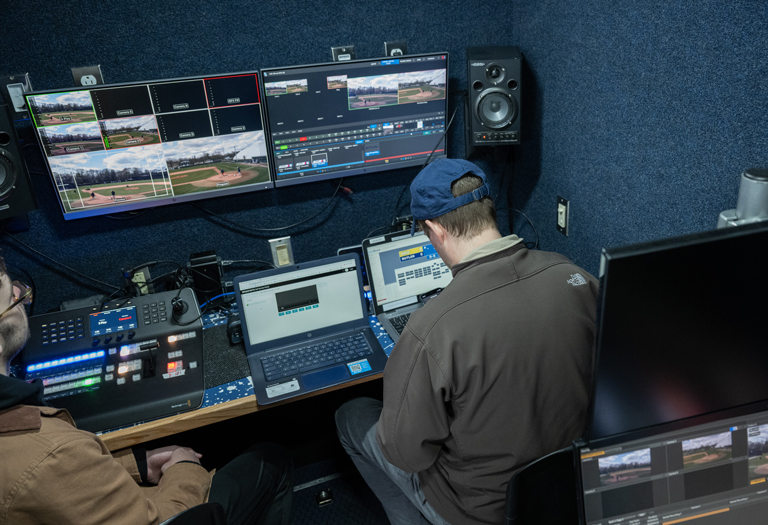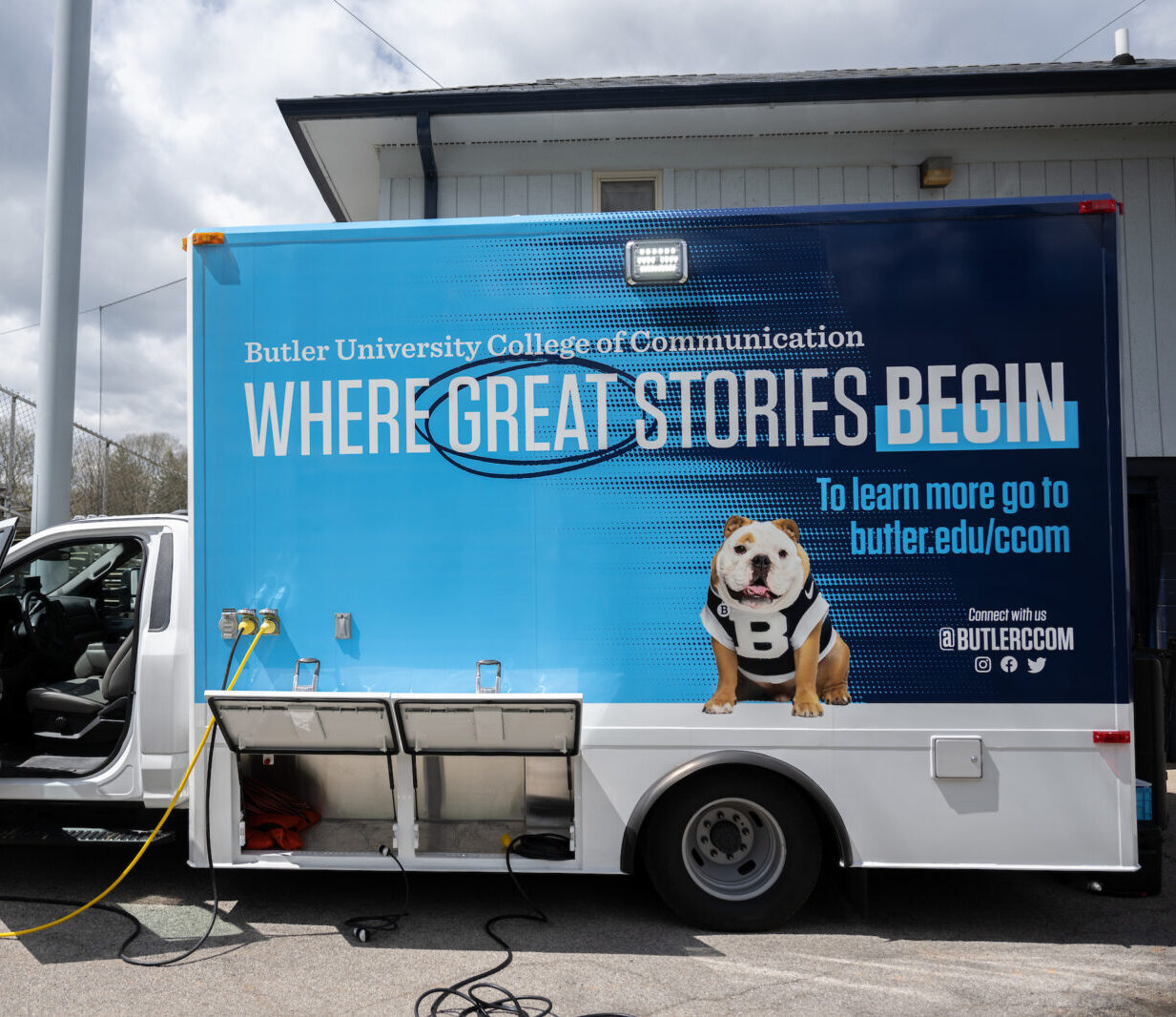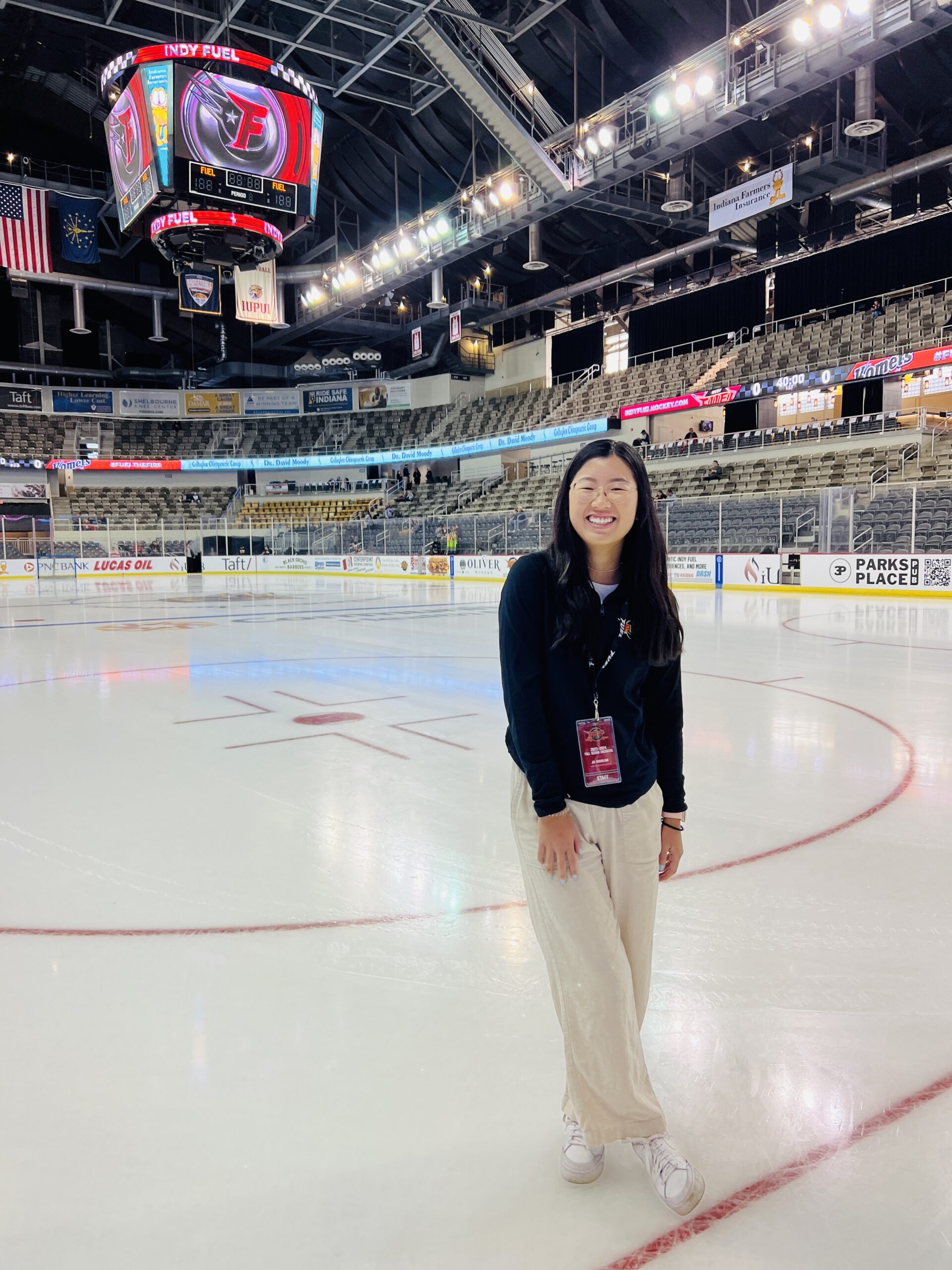Sports Media
MajorBachelor of Arts

Program Information
Curriculum
Sample courses in this program include:
- JR 210 – Reporting and Writing
- SPM 200 – Sports Shooting and Editing
- CCM 470 – Sports, Media, and Culture
- SPM 405 – Sports Newsroom
- JR 412 – In-Depth Journalism
Experiential Learning
Sports Media majors can acquire valuable hands-on experience in live sports production through the CCOM Production Truck. It’s equipped with a robust network for live streaming, an integrated intercom system, broadcast cameras, an advanced multicam video switcher, and more.

Current Student Story
Jia Skrudland, a Sports Media major, talks about her internship experience at Indy Fuel.

Sports Media FAQs
REQUEST INFORMATION
Whatever path you’re interested in pursuing, there’s a place for you at Butler.
Loading…

